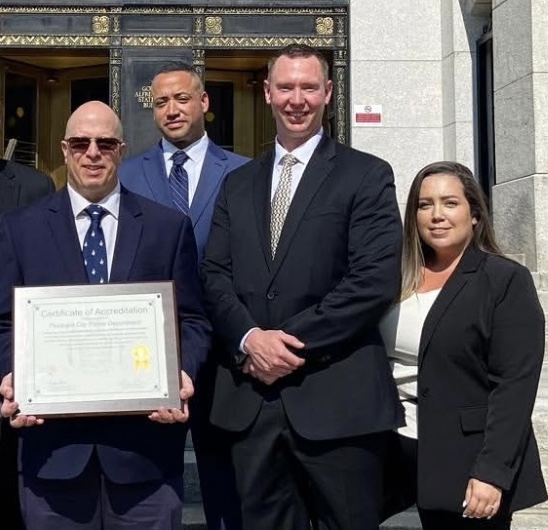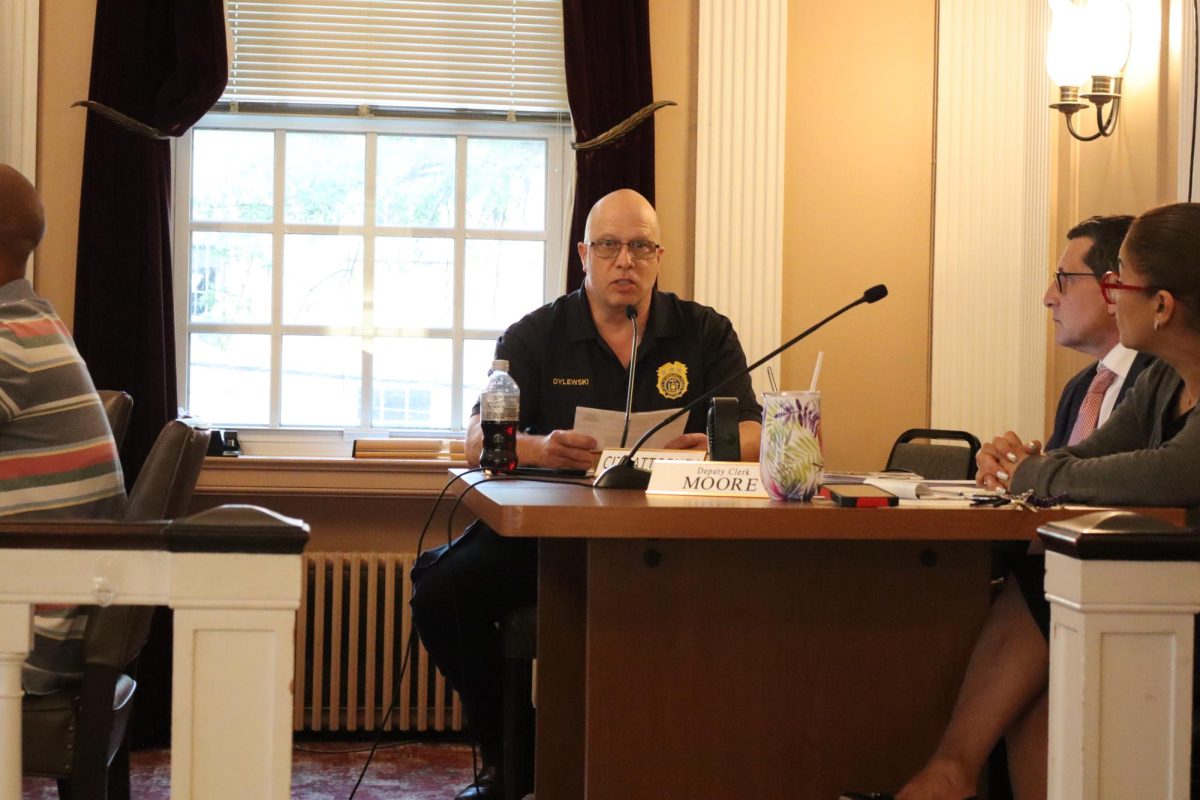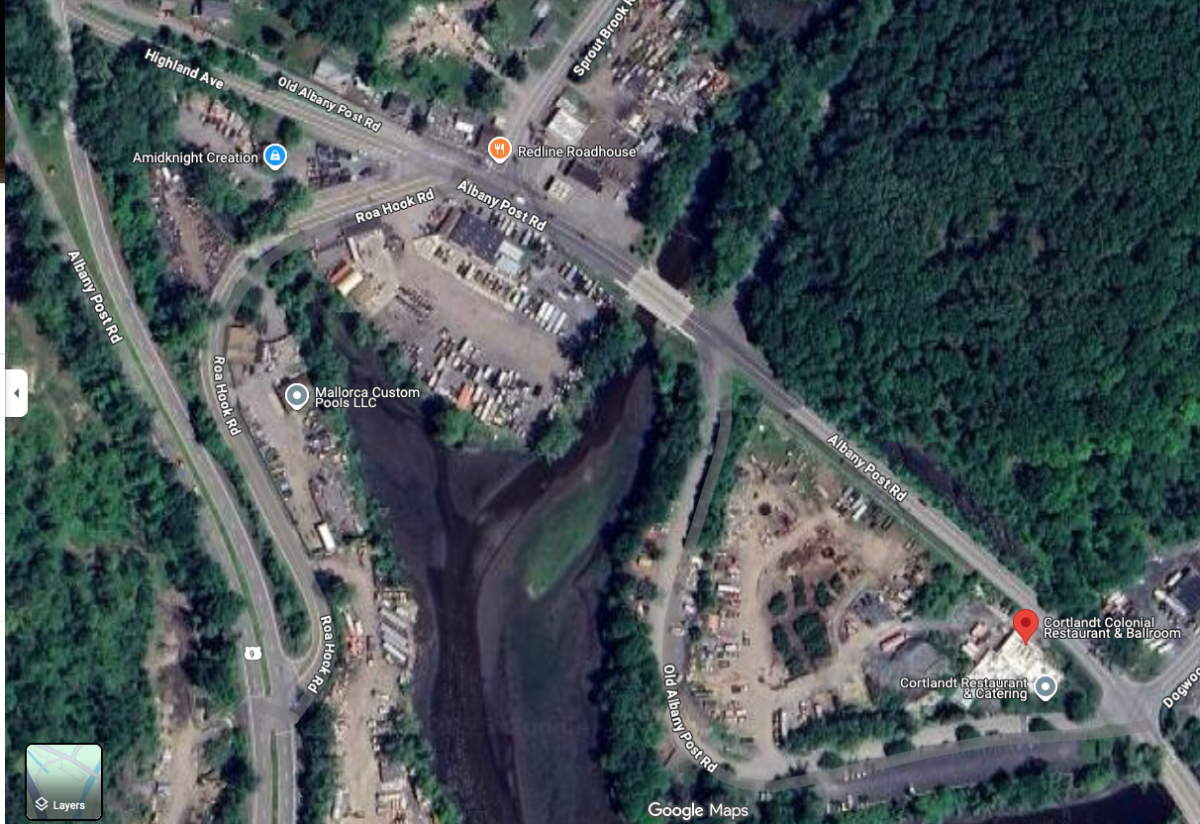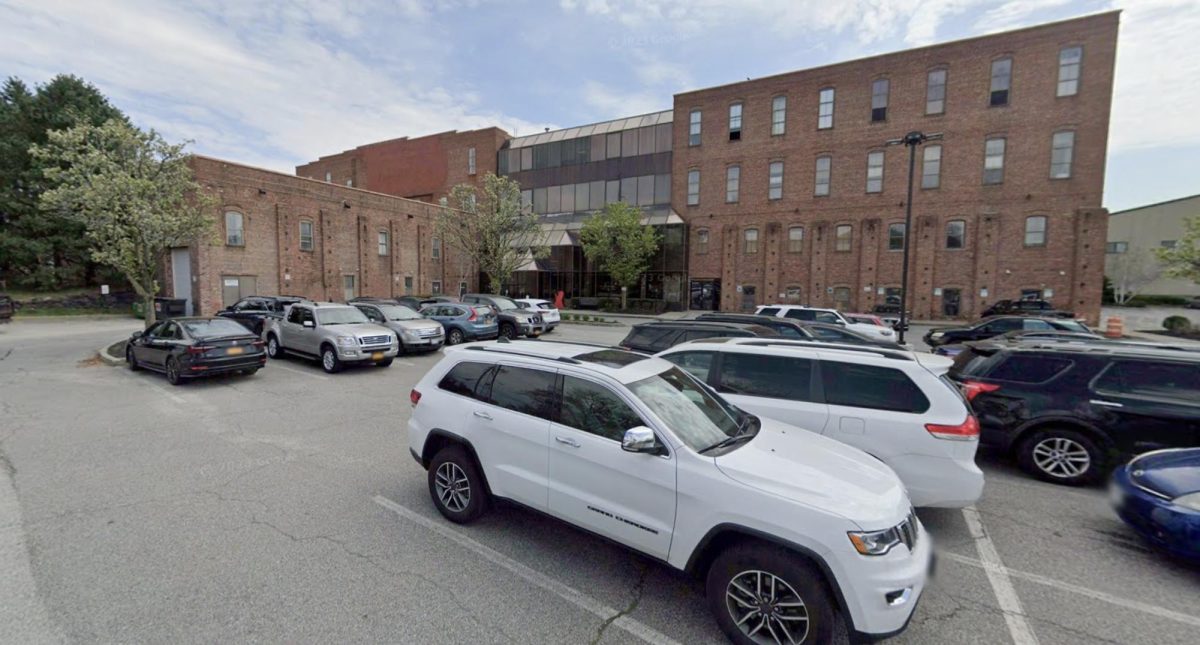The New York State Division of Criminal Justice Services (DCJS) is standing by its removal of former City of Peekskill patrol officer Michael Henderson’s certification, a move that permanently bars him from serving as a police officer in New York State.
In an Article 78 petition, dated June 3, Michael Henderson claimed the City of Peekskill Police Department violated the terms of a settlement agreement that led to his departure from the force and that the DCJS did not give him a fair hearing to present his side of the case. [An Article 78 petition asks the court to overturn a government agency’s decision].
Henderson, a former Peekskill officer for eight years, agreed to resign in a settlement on Feb. 17 after he was caught on Feb. 8 blocking a station closed-circuit security camera and swiping an article of clothing from the Peekskill Police Department women’s locker room to satisfy a “sexual addiction.”
On March 10, Henderson received a letter from DCJS stating the Peekskill Police Department reported Henderson was removed for cause on Feb. 27, resulting in his basic training certification being stripped.
Henderson claimed the police department only supplied partial information to the DCJS regarding the reason for his resignation and that it failed to comply with the terms of a settlement agreement, which he said DCJS was never given.
In court documents dated Aug. 25, 2025, DCJS acknowledged that it never received the settlement agreement or a Feb. 11 letter in which Henderson admitted to blocking the camera. The agency denies it relied on insufficient information when affirming the decision to decertify Henderson.
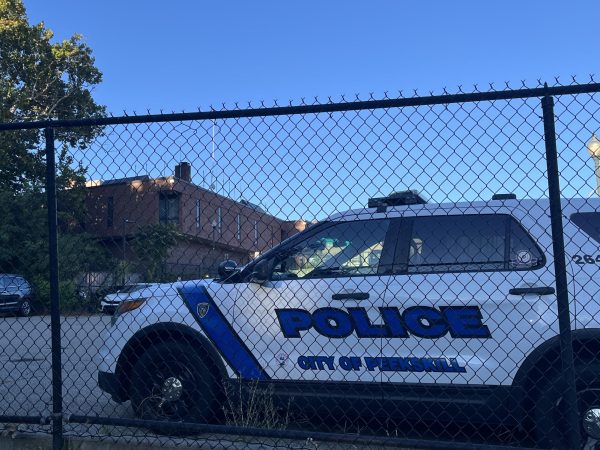
DCJS says Henderson’s certificate was ‘automatically invalidated’
The decision to decertify Henderson’s certificate was not by DCJS, the agency’s attorneys claimed in their response to Henderson’s lawsuit.
In a court affirmation, DCJS Supervisor of Public Safety Programs David Mahany stated DCJS does not invalidate basic training certificates or decertify police officers. Instead, when an employer reports that an officer has ceased employment “for cause,” the officer’s basic training certificate is “automatically invalidated… DCJS merely sends notice of the basic training certificate invalidation to the agency where the officer was employed and to the officer,” Mahany wrote.
Removal for cause is defined as when an officer has an “interruption in service” in connection with allegations of misconduct, which can include criminal activity, whether or not criminally charged or prosecuted, and dishonesty, which can include deceit or misrepresentation.
When Henderson initially admitted to covering the security camera, he claimed to a sergeant that he covered it at the direction of Chief of Police Leo Dylewski, which the chief denied. Henderson then claimed that explanation was a “prank”on the sergeant. Three days later, Feb. 11, he sent a letter to Peekskill Lt. Adam Renwick in which Henderson confessed his initial claim about the chief was a lie to have the sergeant disregard his investigation.
DCJS says it gave Henderson opportunity to present his side
An email exchange between Henderson and the DCJS shows that Henderson was offered the opportunity to challenge the Peekskill police department’s report of him being “removed for cause” with supporting documents.
DCJS received an online portal submission from the Peekskill Police Department on Feb. 27 in which Henderson’s employment status was updated to reflect that he resigned/retired for cause, effective Feb. 21, Mahany said, resulting in his basic training certificate automatically being invalidated.
The Peekskill Police Department was advised of this and Henderson’s home address was requested, so DCJS could notify him directly. On March 10, the police department provided DJCS with Henderson’s home address via email. In a letter dated March 10, Kelly Conlon, Criminal Justice Program Specialist with the Office of Public Safety, informed Henderson that he was decertified.
Upon receipt of the letter on March 16, Henderson inquired as to whether the invalidation of his certificate meant he could not be certified as a peace officer and sought information regarding any records of information provided by the police department in connection to his removal from the registry.
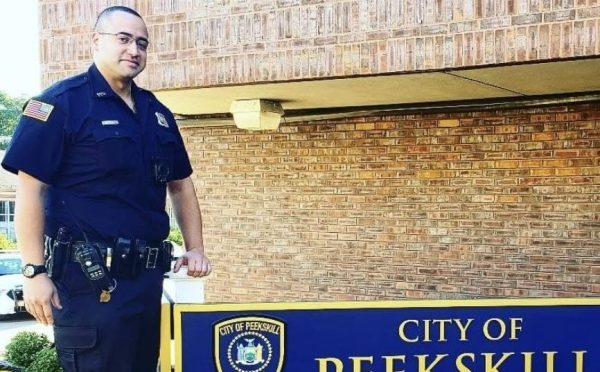
The following day, March 17, Conlon advised Henderson that his permanent decertification as a police officer does not affect his ability to become employed as a peace officer (whose empowerment to arrest and carry a firearm, for example, is nearly identical to a police officer, but typically for an entity other than a municipal police department, perhaps as a probation officer). Henderson responded with his thanks and inquired whether he could review the documentation submitted to DCJS by the police department.
Conlon told Henderson the DCJS could provide him an extract of the portal submission that reflects the department’s reporting of his removal for cause. He could then address any issues or concerns related to their reporting directly with the Peekskill Police Department.
In addition, Henderson was told he could send a letter to DCJS explaining why he believed his separation from employment didn’t meet the definition of removal for cause along with any supporting documentation.
According to DCJS, when an officer challenges the reporting of the reason they ceased to serve, it is DCJS’s standard practice to send an inquiry to the employer requesting they provide a letter outlining the circumstances of the officer’s separation from employment, along with supporting documentation.
DCJS then conducts a review of the materials submitted by the employer and the officer to determine whether the officer’s perceived inaccuracy of the cause for removal is a material inaccuracy in the employer’s reporting.
In a March 19 letter to DCJS, Henderson disputed the material submitted by the police department and challenged the applicability of dishonesty cited in the regulation.
That same day, March 19, Conlon emailed Police Chief Dylewski requesting the department provide a letter outlining the circumstances of his separation and any and all documents supporting the reporting.
On March 31, Lt. Renwick sent a report to DCJS detailing the Feb. 8 incident. At the request of Conlon, on April 1, Renwick submitted statements from both the sergeant and lieutenant on duty, the department’s standard operating procedure, and advised that formal charges had not been drafted as of Henderson’s resignation.

On April 8, Conlon asked if the police department was moving toward termination prior to Henderson’s resignation. That same day, Renwick responded, “Yes, that was our intent.”
On April 21, DCJS sent a letter informing Henderson that the Division determined there was no material inaccuracy in the police department’s report of Henderson’s removal for cause. As a result, Henderson’s request for a hearing was denied.
On April 24, Henderson confirmed he received the letter and formally requested the documentation the police department provided. The following day, Conlon emailed Henderson the requested documents.
In Henderson’s June 3 lawsuit against DCJS and the Peekskill Police Department, he argued that he was not given the opportunity to respond to the two parties’ communications or present supporting documents as part of his case because he “had no idea [the communications] even existed.” Henderson also claimed DCJS’s communication with the police department after his challenge was “covert.”
According to DCJS Supervisor David Mahany, when an officer challenges the reason surrounding their separation from employment, it is a standard practice for DCJS to request from the department a letter outlining the circumstances of the officer’s separation, along with any supporting documents.
A spokesperson for DCJS told Peekskill Herald that DCJS cannot comment on pending litigation. DCJS is represented by Attorney General of the State of New York Letitia James and Assistant Attorney General Randolph Belkin.
When reached by the Herald, Henderson referred the publication to his attorney, Stephen Preziosi. As of press time, Preziosi did not respond for comment.
The Peekskill City Police Department has not yet filed a document responding to Henderson’s suit. City Attorney Eric Gordon requested an extension to Sept. 19, two weeks beyond the original response deadline of Sept. 5.


